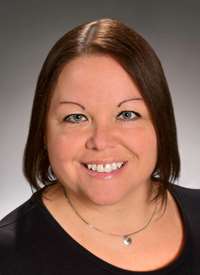Medical Student Electives in Emergency Medicine at the Medical College of Wisconsin
Emergency Medicine Clerkship – Phase 2
The Phase 2 Emergency Medicine Clerkship is a core clinical rotation intended to expose MCW students to the unique and dynamic environment of EM. This two-week course is designed to provide foundational knowledge in the approach to acutely ill and undifferentiated patients. Clinical experiences encompass both academic and community healthcare environments. Whether you decide to go into EM or not, acquiring the skills we use to quickly assess and intervene on the undifferentiated patient will help hone your clinical skills for a future in any field.
About the Rotation
Shifts in the Emergency Department
You will be an integral member of a team of residents and attendings and be involved in the care of patients at our main site at Froedtert Hospital and our freestanding department in New Berlin, the Moorland Reserve Emergency Department. You will be overseen by residents and faculty and will have the opportunity to assist with procedures, assist with medical and trauma resuscitations.
STAR Center Education Modules
These interactive activities teach a review of common chief complaints through oral cases, hands on skill lab, and end with a high-fidelity simulation where YOU are the doctor who must diagnose and treat the patient.
Ultrasound at the Bedside
Join our ultrasound faculty and residents at the bedside to learn the basics of ultrasound examination on real patients in the ED.
Medical Ethics Case Discussions
Making decisions in the emergency department can be difficult. We are faced with questions about patient autonomy, judicious use of resources, inter-family conflict. Using real examples in the ED, join our in-house bioethicist Dr. Ashley Pavlic (who you may also work with) through a guided discussion of your own cases using the founding principles of medical ethics.
Toxicology Rounds
Spend the morning rounding with the toxicology team (which includes multiple EM faculty) at the Wisconsin Poison Center.
M4/Phase 3 Emergency Medicine Elective
This challenging four-week rotation offers experience in the exciting world of emergency medicine. Students taking this rotation will learn about a wide breadth of pathology across all systems, utilizing critical thinking and clinical stills to hone their ability to tackle the challenge of the undifferentiated patient. Regardless of your career plans, this elective will help prepare you for the upcoming challenges of intern year. For students pursuing a career in emergency medicine, you will gain the knowledge, experience, and procedural skills needed to form a strong foundation prior to beginning residency.
About the Rotation
Shifts in the Emergency Department
You will work as a member of the ED team at Froedtert Hospital, Milwaukee County’s busy Level 1 trauma center. As a member of the team, you will see and manage patients in conjunction with your attending physician as well as resident team members. You will assess and treat the undifferentiated patient, be involved in critical care discussions and decisions, and learn important procedural skills required to be an emergency medicine physician.
Didactic Sessions
Weekly didactic sessions will dive into higher level thinking and analysis of important emergency medicine topics, including the approach to many chief complaints, lab interpretation, EKG evaluation, and patient care management. These sessions are designed to be interactive sessions to push your knowledge even further.
STAR Center Labs
You will have the opportunity to participate in high fidelity case simulations to further develop your critical thinking skills as well as team management strategies, while under the safety of the STAR Center simulation lab. In addition, you will learn about trauma management, bedside ultrasound, and splinting and suturing techniques.
SLOE
For any student applying to Emergency Medicine, a “SLOE” (standardized letter of evaluation) is a necessity. Students applying to emergency medicine residency will receive a written SLOE from this rotation, based on your clinical performance. Mid-rotation feedback will you to focus on improving your skills throughout the rotation.
Medical Student Subspecialty Electives in Emergency Medicine
Our Department is fortunate to have numerous faculty who are leaders in many Emergency Medicine subspecialties. Through many of the electives we offer, students can explore whatever "niche" of Emergency Medicine they want! You can learn how to diagnose and treat poisoned patients with nationally-renown toxicologists, practice skills needed to provide medical care in the wilderness, ride along with first responders, and more. Check out our amazing offerings below, and do not hesitate to reach out for any questions about any of these electives.
Available Electives
Meet the Team

McKenna J. Knych, MD
Assistant Professor; Co-Clerkship Director, M4/Phase 3 Emergency Medicine Elective; Course Director, Community Emergency Medicine

Thaddeus (Tad) Schmitt, MD
Assistant Professor; Co-Clerkship Director, M4/Phase 3 Emergency Medicine Elective

Christopher G. Torkilsen, DO, FACEP, FAAEM
Assistant Professor; Emergency Medicine Clerkship Co-Director, Phase 2

Kevin J. McGurk, MD, FAAEM
Assistant Professor; Emergency Medicine Clerkship Co-Director, Phase 2

Alisa Hayes, MD, MSAM
Associate Professor; Vice Chair for Education and Training; UME Director

Maureen E. Davis, MD
Assistant Professor; UME Simulation Lead

Andrew Farkas, MD
Associate Professor; Course Director, Toxicology Elective

Thomas Grawey, DO
Associate Professor; EMS Medical Director, Gateway Technical College; Medical Director, City of Kenosha Fire Department; Assistant Medical Director, Milwaukee County Office of Emergency Management; Associate Program Director, EMS Medicine Fellowship

Ashley Pavlic, MD, MA
Associate Professor, Emergency Medicine, Institute for Health & Humanity, Center for Bioethics and Medical Humanities; Course Director, The Good Doctor, Character and Professional Development Thread; Co-Director, Bioethics and Medical Humanities Pathway; Education Lead, Division of Global and Population Health

Bill Scheels, MD
Assistant Professor; Course Director, Ultrasound Elective

Taylor Sonnenberg, MD, MSGH
Assistant Professor; Chief, Division of Global and Population Health; Course Co-Director, Population Health in the ED, Fourth Year Medical Student Elective

Joshua Timpe, MD
Assistant Professor; Director, Wilderness and Environmental Medicine; Assistant Director, Residency Program; Course Director, Wilderness Medicine Elective





